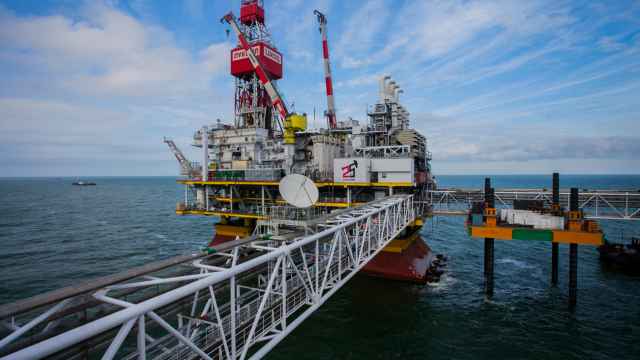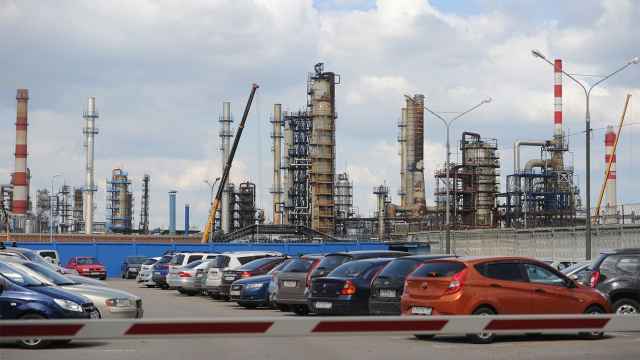Russian natural gas exports to Europe have fallen to their lowest level in half a century, leaving state energy giant Gazprom with billions of cubic meters of unsold gas and deepening the financial strain on one of the Kremlin’s most important economic engines.
Between January and June, Gazprom shipped just 8.33 billion cubic meters of gas to European clients, according to figures compiled by Reuters from daily data on TurkStream, the only remaining active pipeline from Russia to Europe.
That represents a 47% drop from the same period in 2024 and puts Russia on track to deliver less than 16 billion cubic meters to the continent this year. That is a far cry from the 175 billion cubic meters sent in 2021, before the invasion of Ukraine upended the energy relationship between Moscow and the West.
Russia’s gas exports to Europe have not fallen so low since the early 1970s.
By 1975, the Soviet Union was already delivering 19.3 billion cubic meters annually to Europe. Just five years later, after a major pipeline agreement with West Germany, exports had surged to 54.8 billion.
Today, the collapse is the result of Western sanctions, political rifts and the disintegration of Gazprom’s traditional export infrastructure.
Most pipeline routes through Ukraine and Poland have been cut or decommissioned, and liquefied natural gas (LNG) facilities remain insufficient to compensate for the lost volumes.
The Kremlin’s much-hyped Turkish gas hub, announced in 2022 as a workaround to sanctions, has failed to materialize into a meaningful alternative.
As a result, Gazprom is awash in gas it cannot sell. Of the 416 billion cubic meters the company produced in 2024, it managed to sell only 355 billion, leaving an estimated 60 billion cubic meters unused — roughly equivalent to the United Arab Emirates' entire annual output.
Efforts to reroute exports have so far yielded limited success. The Power of Siberia pipeline to China, opened in 2019, delivers about 20% of the volumes once sent to Europe.
Talks over a second pipeline remain stalled, and broader hopes of pivoting to Asian markets have proven more complicated and time-consuming than Moscow anticipated.
With few options, Russian officials are scrambling to find domestic uses for the glut.
The Far East Development Ministry has proposed using the surplus to power data centers and AI projects.
The Energy Ministry has suggested supporting the struggling coal sector, which requires gas-fired power plants near mining operations.
The Kremlin is even considering sending 55 billion cubic meters of gas per year to Iran, a country that already holds the world’s second-largest reserves and controls the South Pars field, the largest on the planet.
Financially, the pressure on Gazprom is mounting. In 2023, the company posted a loss of 629 billion rubles ($8.2 billion) under international financial reporting standards. Though it returned to profitability in 2024, reporting a net profit of 1.2 trillion rubles ($15.6 billion), the core gas business still recorded a loss of 1 trillion rubles ($13 billion).
Looking ahead, the situation could grow even more dire.
A confidential Gazprom forecast obtained by the Financial Times projects cumulative losses of up to 15 trillion rubles ($195 billion) over the next decade if export opportunities do not improve.
That figure reflects a decade of negative cash flow, a scenario that could seriously undermine the Kremlin’s broader economic ambitions.
A Message from The Moscow Times:
Dear readers,
We are facing unprecedented challenges. Russia's Prosecutor General's Office has designated The Moscow Times as an "undesirable" organization, criminalizing our work and putting our staff at risk of prosecution. This follows our earlier unjust labeling as a "foreign agent."
These actions are direct attempts to silence independent journalism in Russia. The authorities claim our work "discredits the decisions of the Russian leadership." We see things differently: we strive to provide accurate, unbiased reporting on Russia.
We, the journalists of The Moscow Times, refuse to be silenced. But to continue our work, we need your help.
Your support, no matter how small, makes a world of difference. If you can, please support us monthly starting from just $2. It's quick to set up, and every contribution makes a significant impact.
By supporting The Moscow Times, you're defending open, independent journalism in the face of repression. Thank you for standing with us.
Remind me later.






